When it comes to understanding your heart health, a cardiovascular risk assessment report can be an invaluable tool. This comprehensive analysis not only provides insights into your current health status but also highlights areas where improvement can be made. By evaluating various factors such as cholesterol levels, blood pressure, and lifestyle choices, this report empowers you to make informed decisions about your well-being. Curious to learn how these assessments can benefit you? Let's dive deeper into this topic!

Patient Identification and Demographics
The cardiovascular risk assessment report comprises crucial patient identification and demographics, essential for personalized healthcare strategies. A typical assessment includes the patient's age, which significantly influences cardiovascular risk; gender, as certain cardiovascular conditions manifest differently in men and women; and ethnicity, with groups such as African Americans exhibiting higher risk for hypertension and diabetes. Additional data includes body mass index (BMI), a numerical value reflecting body fat based on height and weight measurements, and family history of cardiovascular diseases, providing insights into genetic predispositions. Lifestyle factors also play a vital role, encompassing exercise frequency implying activity levels and dietary habits influencing cholesterol levels. This demographic information is indispensable for tailoring effective intervention and monitoring plans for individual patients.
Detailed Risk Factors Overview
Cardiovascular risk assessment reports are crucial for analyzing individual health conditions that contribute to heart disease. Key risk factors include elevated cholesterol levels (LDL exceeding 130 mg/dL), high blood pressure (above 130/80 mmHg indicates hypertension), and smoking habits, which increase the likelihood of coronary artery disease (CAD). Additional factors such as obesity (BMI over 30), diabetes prevalence (blood sugar levels above 126 mg/dL), and sedentary lifestyle result in higher risks. Family medical history also plays a significant role; first-degree relatives with cardiovascular conditions, particularly before age 55 for males and 65 for females, further increase susceptibility. Regular assessments (at least annually for high-risk individuals) are vital to monitor these factors and implement preventive strategies effectively.
Cardiovascular Health Evaluation Summary
Cardiovascular health assessments provide critical insights into an individual's heart health status and potential risk factors. Standard evaluations may include parameters such as blood pressure readings (optimal level below 120/80 mmHg), cholesterol levels (total cholesterol ideally under 200 mg/dL), and body mass index (BMI in a healthy range of 18.5 to 24.9). Additional metrics may involve lifestyle factors, including physical activity levels (recommended 150 minutes of moderate exercise weekly) and dietary habits, particularly saturated fat intake (less than 10% of total calories). Key screening tools encompass the Framingham Risk Score, which calculates the 10-year cardiovascular risk percentage based on factors like age, sex, smoking status, and diabetes history. Regular monitoring and personalized strategies are vital for preventing cardiovascular diseases, which remain a leading cause of mortality globally.
Recommended Lifestyle Modifications
A comprehensive cardiovascular risk assessment reveals several lifestyle modifications essential for reducing risks associated with heart disease and promoting overall health. Incorporating regular physical activity, such as 150 minutes of moderate-intensity aerobic exercise per week (based on CDC guidelines), can significantly improve cardiovascular health. Emphasizing a diet rich in whole foods, emphasizing fruits, vegetables, whole grains, and lean proteins, while reducing saturated fats, trans fats, and sodium (recommended daily intake: under 2,300 mg of sodium), is crucial. Maintaining a healthy body weight, ideally a Body Mass Index (BMI) within the range of 18.5 to 24.9, can further decrease the risk of cardiovascular events. Additionally, quitting smoking and limiting alcohol consumption to moderate levels (up to one drink per day for women and two drinks per day for men) contribute to a healthier heart. Regular health screenings for blood pressure, cholesterol levels, and blood glucose can also help monitor and manage risk factors effectively.
Suggested Medical Interventions or Follow-ups
Suggested medical interventions for cardiovascular risk assessment may include lifestyle modifications, pharmaceutical treatments, and regular follow-up appointments. Lifestyle changes can encompass dietary adjustments, such as reducing sodium intake below 2,300 milligrams per day and increasing consumption of fruits and vegetables, aiming for at least five servings daily. Regular physical activity, targeting at least 150 minutes of moderate exercise weekly, can significantly lower cholesterol levels and improve overall heart health. Pharmacological interventions may involve statins for managing high LDL cholesterol or antihypertensive medications to control elevated blood pressure, ideally maintaining systolic levels under 130 mmHg. Follow-up appointments should be scheduled every three to six months to monitor progress, assess the effectiveness of interventions, and adjust treatment plans as necessary, ensuring that patients reach optimal cardiovascular health targets.

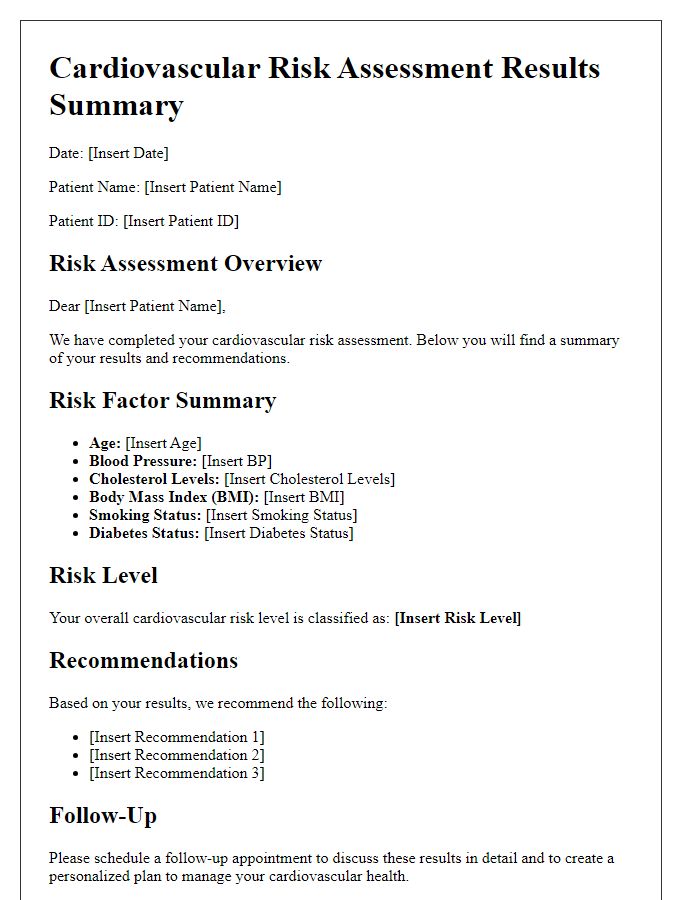
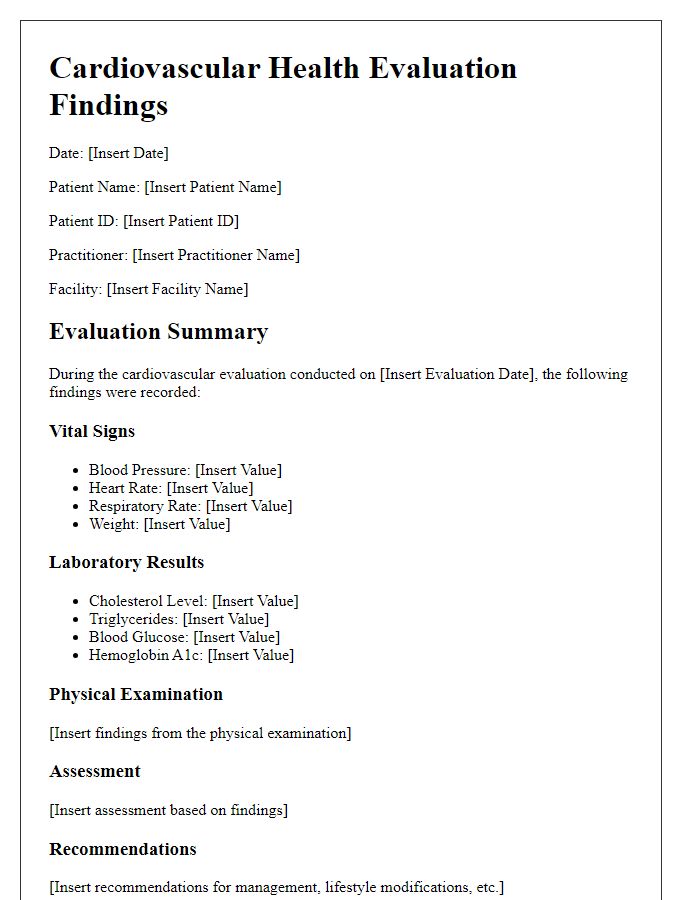
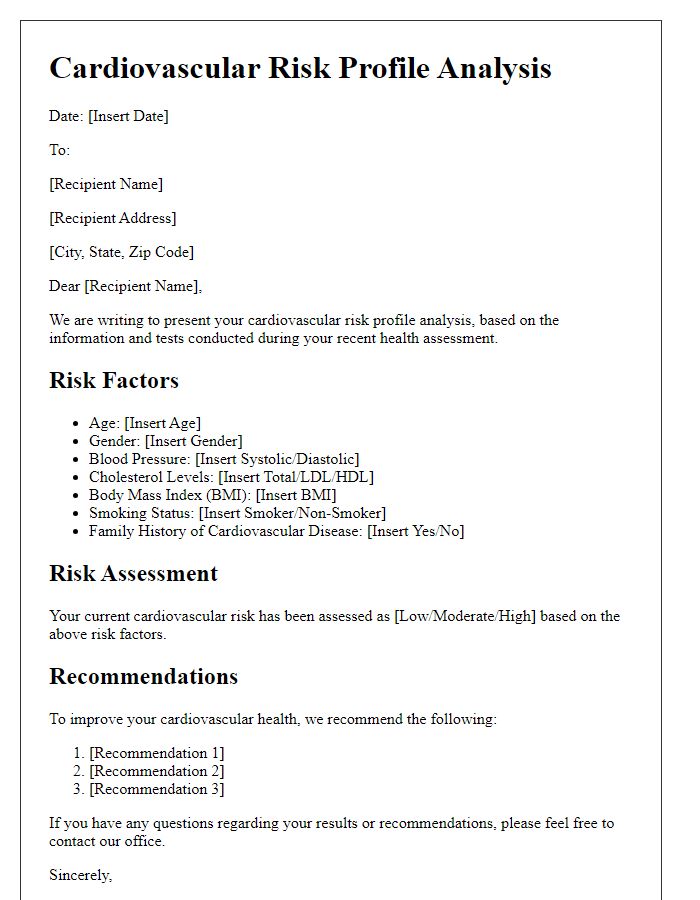
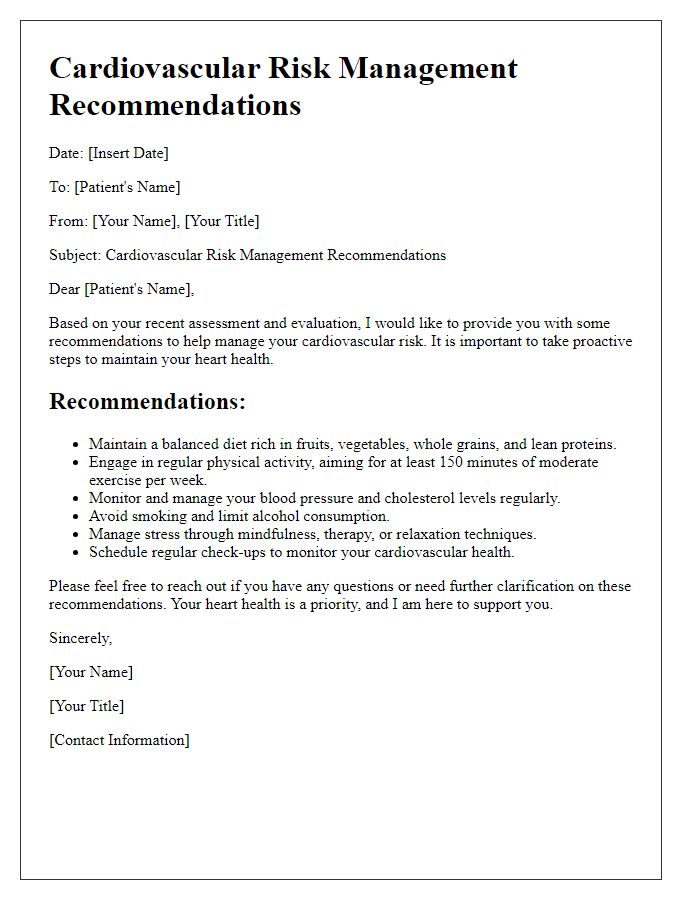
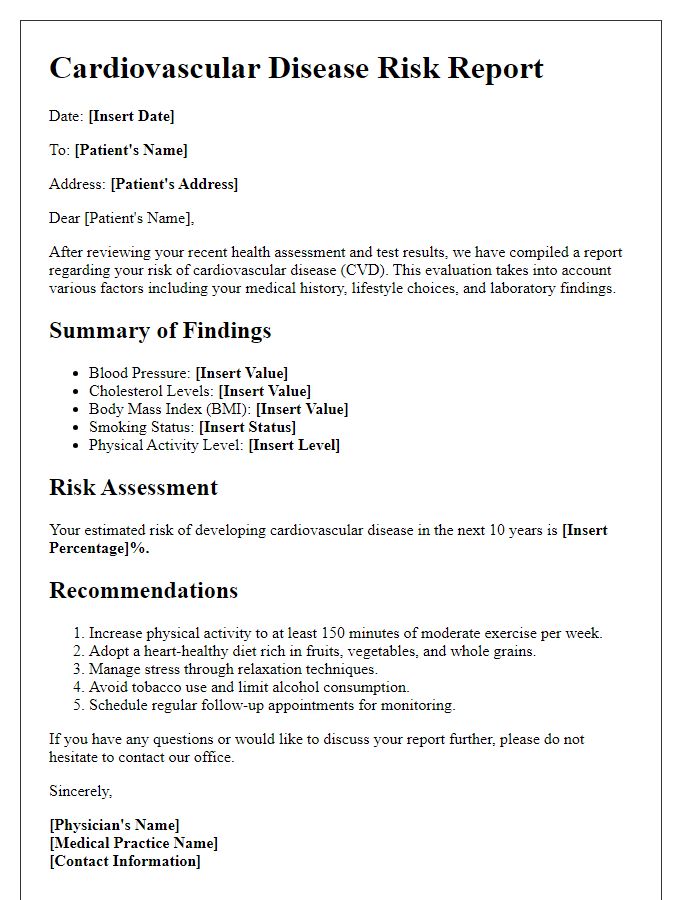
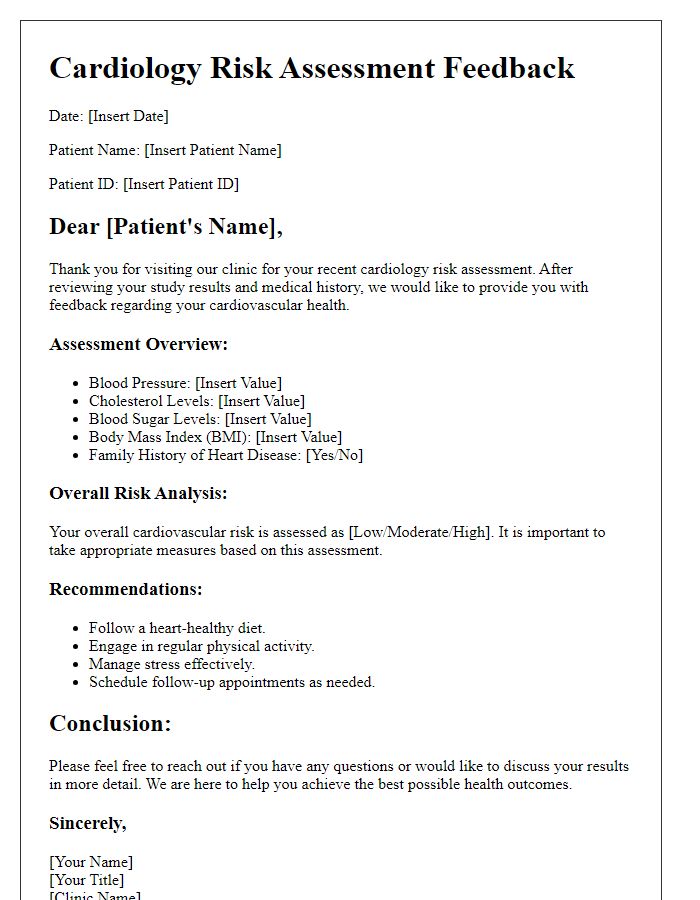
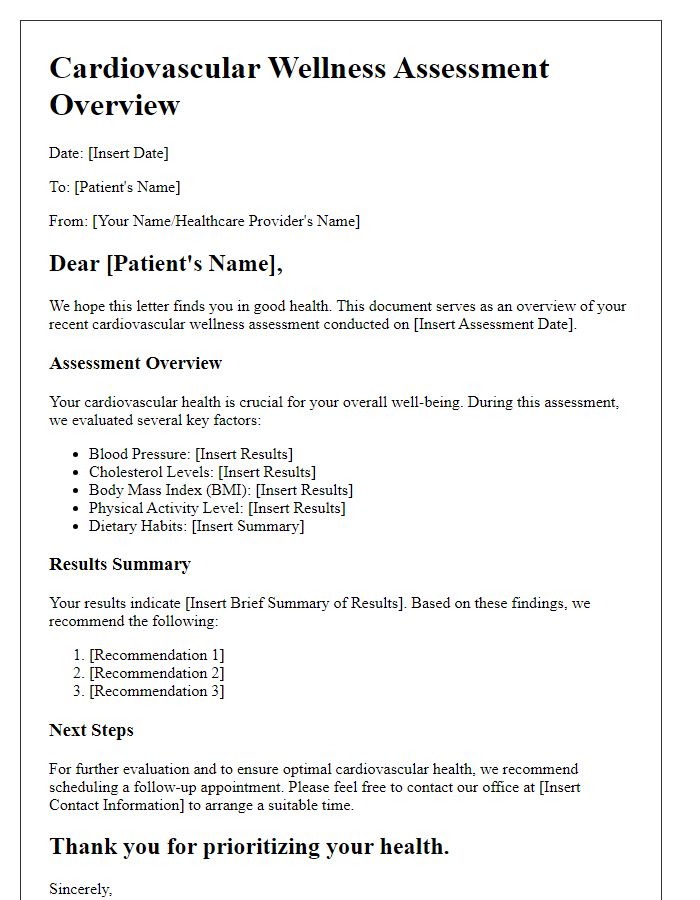
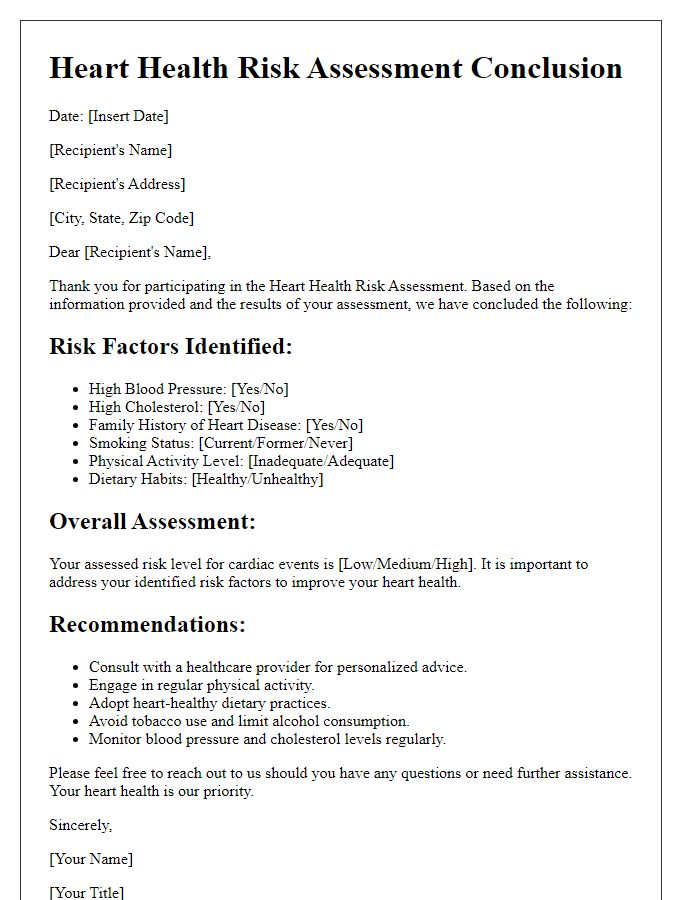
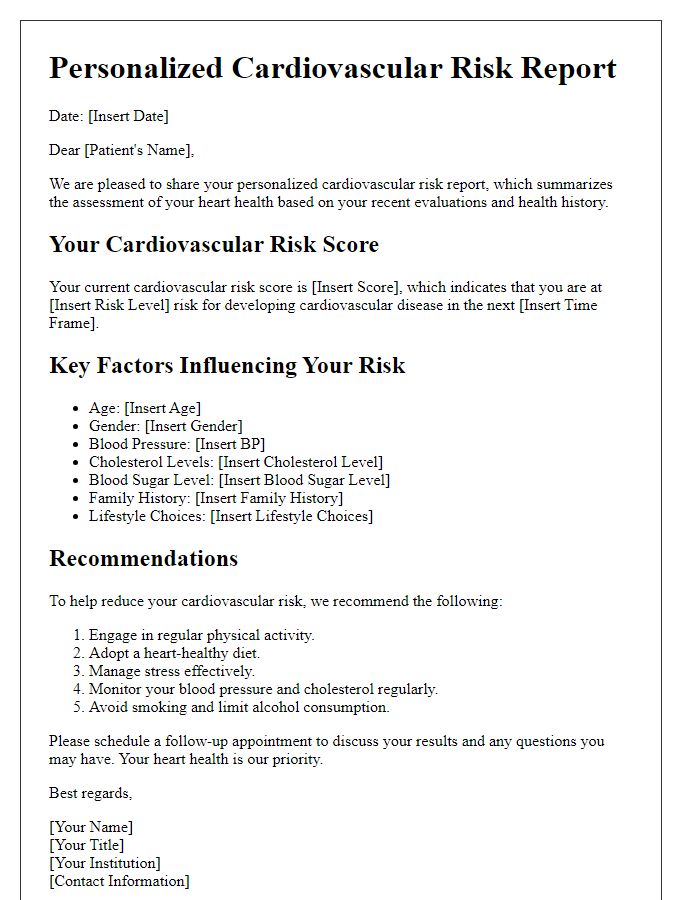
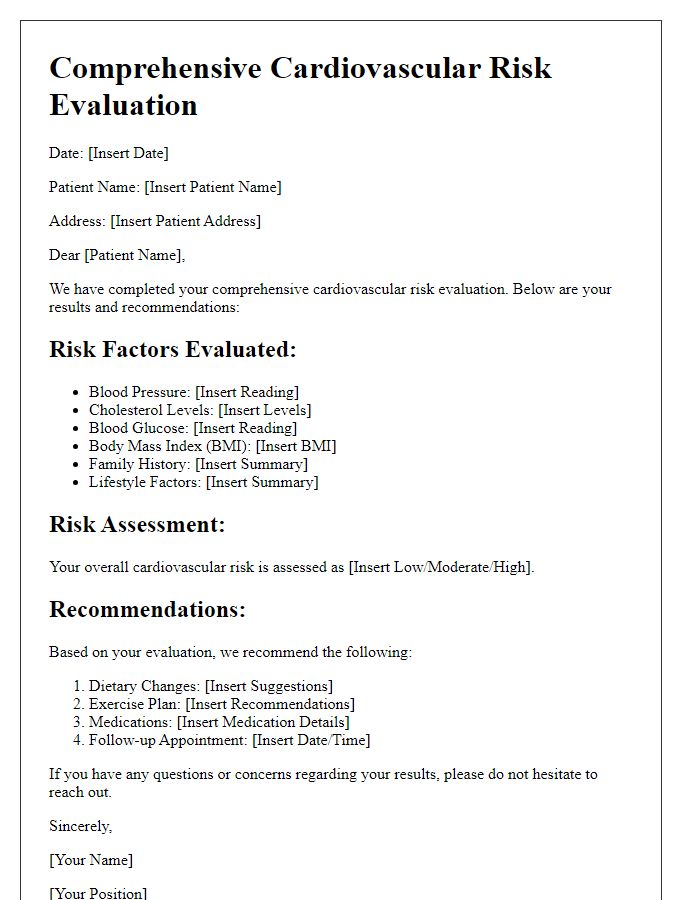


Comments